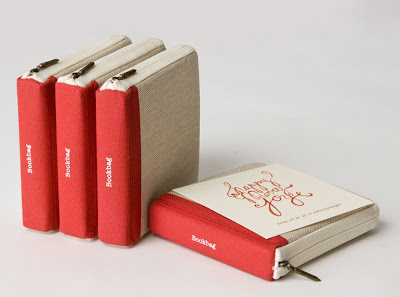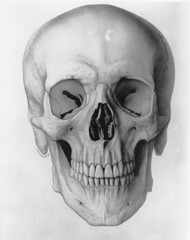

Doiron speculates that this passion for books and reading might have something to do with the long winters, which I know, as a person who went to college in the Pine Tree State (Bates, '65) can be formidable. But there is also something wonderfully complex in the Maine character, I think, that savors a good story, and maintains an enduring respect for things in print. (One response on Doiron's blog offered this: "It's dark. It's cold. There's a lot of empty space and the mind wanders. The options? Read, write or drink a lot. In really tough winters, sometimes we go for all three.")
What has made me think about all this was a quick trip my wife Connie and I made this past week up to Bar Harbor for a bit of research, a pleasant getaway that allowed us to enjoy a leisurely drive home along U.S. 1, visiting one second hand bookstore after another, six by my count, over one forty-mile stretch between Trenton and Searsport, all of them open for business, which is saying something, since there is still scattered snow on the ground despite the official arrival of spring, and most of the summer tourist attractions still off-season.
 Browsing was pretty much the order of the day for me, though I was nonetheless impressed by the numbers and the variety of the offerings. One place I would certainly put on the must-visit list for anyone trekking Down East is Big Chicken Barn Books & Antiques in Ellsworth, a perfectly appropriate name for a converted chicken barn one hundred yards long, three stories high, and filled on the first floor with every manner of antique and knick-knack, and lined on the second with 120,000 books, magazines and pieces of ephemera. The place was bustling when we stopped by Saturday afternoon, so there was little time to chat at length with owners Annegret and Mike Cukierski, who opened this splendid curiosity twenty-three years ago, and have every intention of keeping it going, what with son Chad now fully involved in the operations. There's lots of stuff in here on Maine, a healthy section of regional history and literature, and remarkable runs of magazines and periodicals. The owners say this is the largest book store in the state, and I don't think this is a case of hyperbole. It is easily the longest book gallery I have ever seen--a football field, one end to the other, and a fabulous chicken sign out front.
Browsing was pretty much the order of the day for me, though I was nonetheless impressed by the numbers and the variety of the offerings. One place I would certainly put on the must-visit list for anyone trekking Down East is Big Chicken Barn Books & Antiques in Ellsworth, a perfectly appropriate name for a converted chicken barn one hundred yards long, three stories high, and filled on the first floor with every manner of antique and knick-knack, and lined on the second with 120,000 books, magazines and pieces of ephemera. The place was bustling when we stopped by Saturday afternoon, so there was little time to chat at length with owners Annegret and Mike Cukierski, who opened this splendid curiosity twenty-three years ago, and have every intention of keeping it going, what with son Chad now fully involved in the operations. There's lots of stuff in here on Maine, a healthy section of regional history and literature, and remarkable runs of magazines and periodicals. The owners say this is the largest book store in the state, and I don't think this is a case of hyperbole. It is easily the longest book gallery I have ever seen--a football field, one end to the other, and a fabulous chicken sign out front. We had great fun, too, at Country Store Antiques, Books & Wine, just outside of Bar Harbor in Trenton, a pretty spacious operation in its own right, with a fine variety of offerings, including a full floor devoted entirely to 50,000 books. I especially enjoyed schmoozing with owner Vicki Landman, a former county librarian in Maryland, now a full time books and antiques seller in her native state. I told her of my interests in the Maine paper industry, and she suggested a number of titles that might be useful, and gave me the names of some people to contact for more information. "Hey, I'm a librarian," she said.
We had great fun, too, at Country Store Antiques, Books & Wine, just outside of Bar Harbor in Trenton, a pretty spacious operation in its own right, with a fine variety of offerings, including a full floor devoted entirely to 50,000 books. I especially enjoyed schmoozing with owner Vicki Landman, a former county librarian in Maryland, now a full time books and antiques seller in her native state. I told her of my interests in the Maine paper industry, and she suggested a number of titles that might be useful, and gave me the names of some people to contact for more information. "Hey, I'm a librarian," she said. We didn't get a chance to stop at Harding's Rare Books further down the coast in Wells, a lot closer to my home in Central Massachusetts, and always a favorite stop of mine whenever I'm in the area. Any booking odyssey to Maine has to include a stop here--with ample time set aside for serious examination of each and every one of the fourteen rooms. Founder Doug Harding has been in the business here since 1960, and is a widely respected professional in the trade. (I got my deathbed edition of Walt Whitman's "Leaves of Grass" from him twenty-five years ago, a lovely copy in mint condition, and my collection of Winslow Homer wood engravings has been greatly enriched by my many visits here over the years as well.) For those who need a navigational fix, Wells is 48 miles south of Freeport, home of L.L Bean. There are many splendid places to stop for lobster in between.
 Finally, if I may, how about a picture of yours truly in Acadia National Park, courtesy of CVB, to prove that one does not live entirely by books alone (at least not all the time):
Finally, if I may, how about a picture of yours truly in Acadia National Park, courtesy of CVB, to prove that one does not live entirely by books alone (at least not all the time):Happy booking!
Bemis, a bank teller cruelly henpecked by his wife and brow beaten by his boss for a reading habit that they considered a waste of time, was eating lunch one day, secluded in the bank's vault and cozying up to a book, when Nuke War I broke out and ended within thirty seconds. Protected by the vault, Bemis emerged into a crumbled and depopulated Reading, PA, his home town. Alone and bereft, he was on the verge of suicide when he noticed that within the ruins of the local library were thousands of books waiting to be read. Now with Time Enough at Last (the title to Serling's Twilight Zone episode) to read as much as he wanted to without interruption or opprobrium, Bemis had just opened a book and was eager to begin reading when he reached to pick something up and his glasses fell to the ground and shattered.

Lizania Cruz designed this canvas bag for Anthropologie. It was sent as a holiday gift to their better customers.
Cruz also created this:
Thanks to swissmiss for the lead
But even the most cerebrally occupied must bow to the will of the flesh and the desire for human company. Thus the appearance of personal ads in the New York Review of Books and the London Review of Books.
The nature of the ads in each of these august publications is, however, decidedly different, and reveals the character of the British and American booklovers who place them. Without putting too fine a point on it, the Brits are much more direct, often brutally honest, eccentric and, yes, wittier than we are on this side of the Atlantic (book) Shelf.
"My animal passions would satisfy any woman, if only it weren't for the filibustering of this damned colon. And the chafing of these infernal hospital sheets. Write now to M, 83, for ward visiting hours and list of approved solids."
Every bibliophile wants to hunt at Larry McMurtry's Booked Up in Archer City, Texas. At least you should. It was my pleasure to organize such a trip for the toddling Bibliophiles of Oklahoma back in January.
If you've not heard of Booked Up, it is a world class book mine in an unlikely place. McMurtry has bought and sold books for decades. Sure, he's a Pulitzer Prize / Oscar-winning writer, but in interviews and his recent memoir Books, he's just another bibliophile bookseller. McMurtry's purpose relocating to his ancestral home was to establish an American book town (without a festival, which "is the last thing I want," according McMurtry). A fantastic interview spelling out his motivations and ideas on Nigel Beale's Biblio File is here.
For most book collectors, Archer City may as well be on the moon, but for we few book lovers shouting in the hinterlands, it is our Shangri La. We don't have a Strand, a Powell's, or a CODEX book fair. Having journeyed to Booked Up a few times before, I served as the bibliosherpa, along with Lynn Wienck of Chisholm Trail Bookstore, who is more familiar with the environs of the Red River country.
For the Bibliophiles of Oklahoma, this was our most well attended event, so we will certainly go again, perhaps in early autumn. North Texas can be merciless in the summer. For our trip, at the end of January, the weather was pleasant, though crisp. It looks chilly in the photos, right? All of our members found additions for their collections. Not too hard when a dozen ravenous bibliophiles descend on 400-500,000 quality books. Everyone also saw items that surprised them. For me, it was a very nice (bargain!) copy of The Great Gatsby for my Modern Library collection. The Mrs. was surprised how such a large number of books could be so well organized, well lit and clean. Her one complaint was that the 10' shelves were too tall for her. An example is below. This is where I spent more than half my day, the Books About Books section. Yes, nearly that entire run visible, all 10' high, are babs.
When it comes to surprises, you don't have to take my word for it. John C. Roberts, a member of the esteemed Caxton Club of Chicago, published a fantastic article in the January issue of the Caxtonian about his own southern sojourn from Chicago. Even this more established collector of modern firsts found surprises.
There are a few practical considerations weighing a trip to Booked Up:
- You won't go there "passing through" to somewhere else. For many collectors, Archer City can be a destination. Really.
- Virtually none of the inventory, which is hand selected by McMurtry for quality, is online. None.
- Perhaps as many as 500,000 books, no junk. None.
- Wear layers. There is little/no heating or air-conditioning in the four buildings, and north Texas can have erratic weather. The buildings are a little spread out.
- According to the signs posted about, books are organized Erratically/ Impressionistically/ Whimsically/ Open to Interpretation. Moby Dick could be in American Fiction, Animals, Nautical, Fishing & Hunting, Travel, etc.
- As of this writing, they still accept major credit cards and cash.
- If you go with a group, bring water and synchronize watches. Cell service is spotty at best.
So, if you've needed an excuse to go, I can't give you one. I can say this, you won't be sorry.
 The National Museum of Health and Medicine [part of the National Library of Medicine] has just created a massive archive of medical illustrations and photography. Best yet, it is *all* free and housed at flicker.
The National Museum of Health and Medicine [part of the National Library of Medicine] has just created a massive archive of medical illustrations and photography. Best yet, it is *all* free and housed at flicker.
An Army archivist is undertaking a massive project to digitize and make public a unique collection of rare and sometimes startling military medical images, from the Civil War to Vietnam. This previously unreported archive at the Army-run National Museum of Health and Medicine in Washington, D.C., contains 500,000 scans of unique images so far, with another 225,000 set to be digitized this year. Mike Rhode, the museum's head archivist, is working to make tens of thousands of those images, which have been buried in the museum's archive, available on Flickr. Working after hours, his team has posted a curated selection of almost 800 photos on the service already. "You pay taxes. These are your pictures," Rhode said. "You should be able to see them."
Last summer Congress passed the Consumer Product Safety Improvement Act of 2008 (CPSIA). While well intentioned, being primarily a result of the toys being made with in China with lead paint scare that swept the country, CPSIA has potential catastrophic consequences for the book world. What's the problem? Any book printed before 1986 becomes illegal in the hands of children.
Per usual, there are the latest issues of The New Yorker, New York, Macworld, Traps (a quarterly for drummers), etc. that require attention. Though these magazines, over time, sojourn, nomad-like, at various spots throughout my home, they always find their way back to the table.
 As some may know, David and Cynthy of The Philadelphia Rare Books and Manuscripts Company suffered a tragic loss recently. On March 9, 2009, a fire tore through the shop consuming books and taking their two shop cats, Sessa and Thalia. The silver lining is that no humans were hurt, many of the books were unharmed and/or will be salvaged and the building itself appears to be structurally sound.
As some may know, David and Cynthy of The Philadelphia Rare Books and Manuscripts Company suffered a tragic loss recently. On March 9, 2009, a fire tore through the shop consuming books and taking their two shop cats, Sessa and Thalia. The silver lining is that no humans were hurt, many of the books were unharmed and/or will be salvaged and the building itself appears to be structurally sound.
Our thoughts and best wishes go out to them. I can thinks of few things worse and hope all goes as well and as smoothly as possible.
Please note, they have indicated that their internet connection is currently flakey. That said, words of support and commiseration are seldom a bad thing and can be directed here. A short article, image and video can be found here.AOL video can be found here.






